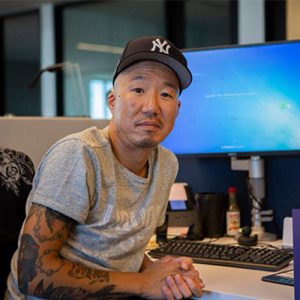 On an evening in March 2018, successful music executive, Nuel Cho, was out in Los Angeles with three friends, two of whom were longtime acquaintances from Korea, where he was raised. After a few hours catching up, the friends waited for taxies to head home. Nuel insisted his friends jump in the first set of taxis and he continued walking down the street to find another cab. “That’s the last thing I can remember,” Nuel said.
On an evening in March 2018, successful music executive, Nuel Cho, was out in Los Angeles with three friends, two of whom were longtime acquaintances from Korea, where he was raised. After a few hours catching up, the friends waited for taxies to head home. Nuel insisted his friends jump in the first set of taxis and he continued walking down the street to find another cab. “That’s the last thing I can remember,” Nuel said.
In a shocking turn of events, Nuel was found by police at 10 a.m. the following morning, after he reportedly experienced blunt force trauma to the right side of his head, which resulted in a traumatic brain injury.
Surprisingly, the accomplished businessman was no stranger to the realities of urban streets. In Korea, Nuel experienced incidences that he believes were influenced by the social constructs of Korean hip-hop culture.
Nevertheless, Nuel followed his passion for the music scene and moved to the US to attend New York University and intern for the rap group Gang Starr.
Nuel continued to climb the industry's corporate ladder, holding positions at major record labels before landing his current role as Vice President at Sony Music Entertainment in Los Angeles.
After Nuel’s incident, he stabilized at a hospital and spent time at the California Rehabilitation Institute before beginning treatment at the Centre for Neuro Skills in Los Angeles. “Nuel had mild to moderately impaired upper extremity coordination, and mild visual perceptual and ocular motor deficits,” said Jessica Remenaric, CNS case manager. “His cognitive deficits were the biggest concern. He had difficulty sustaining attention and memory, which impacted his overall problem-solving.”
CNS therapists worked with Nuel on emotional coping strategies and appropriate frustration management, as well as treating minimal depression in counseling. “I was defensive and aggressive at first,” said Nuel. However, he began to view rehabilitation as “a neuron workout that allowed my brain to fire faster, which brought me to a new level.”
Upon completion of his program at CNS, Nuel has returned to driving and living independently and has also returned to his position at Sony. He says one of his key milestones was completing a challenging workout toward the end of his treatment.
“This was a humbling experience,” he noted. “It allowed me to rediscover myself. I went from a negative person to an inspired, more positive and open person. I realized that life isn’t about winning or losing it’s about balance,” he reflected. “I’m starting to invest time in more meaningful projects. I want to make a positive change in the music industry.”
Nuel also wants to use his experience to educate others on traumatic brain injury. In that endeavor, he was asked to speak at the Physical Medicine & Rehabilitation Annual Conference on Sept. 15 in Los Angeles. The conference focused on traumatic spine and brain injury rehabilitation. CNS CEO, Dr. Mark Ashley, also shared his expertise on “Endocrine Management of Brain Injury” at the event.
“Not enough people know about TBI, and I want to do all I can to raise awareness about it,” Nuel said.
CNS Monthly Newsletter
The latest CNS updates, including events, company information, and patient care developments
The Inside View
Quarterly magazine focused on brain injury research, rehabilitation, and advancements shaping the field
Sign-up for one or both to stay connected with brain injury news and recover